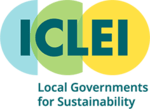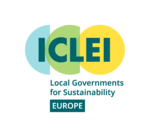Exploring nature-based solutions to restore rural ecosystems: Key takeaways from the latest UbN NBS EduWORLD webinar

UrbanByNature (UbN) and NBS EduWORLD continued their collaborative journey with a dynamic second webinar on 11 September 2024. This session shifted the focus from urban spaces to rural ecosystems, highlighting the central role of nature-based solutions (NBS) in restoring and sustaining critical environments such as the Moldova Biosphere Reserve and Lake Beleu, localised in the Danube Delta region, a national trans-bordery area. Based on the UbN programme's 7-step integrated management approach, this edition focused on steps 2 and 3, which cover co-creating frameworks and prioritising sustainable actions in rural areas.
After the introduction of the topic led by ICLEI Europe, Dr. Agata Klimkowska, scientist specialised in Peatland Wetlands with a record on studying the value, risks and restoration techniques of these critically threatened ecosystems, and the Higher Education Students winners for the best project for Lake Beleu in Moldova, presented at the NBS EduWORLD Hackathon virtual event this year, shared their knowledge and experiences with the audience. The diverse spectrum of participants (i.e. practitioners, students, local authorities and citizens), who attended this webinar, turned the second part of the event into an engaging exchange of ideas, raising questions after their speeches on governance challenges, technical aspects, recommendations on practical restoration strategies and ways to improve current tras-national cooperation.
Key takeaways from the webinar:
- Governance and ecosystem restoration challenges: TThe example of the Moldova Biosphere Reserve shows how complex it can be to coordinate restoration efforts. To address these challenges, an integrated governance framework is needed to involve local communities, regional authorities, and international partners. Long-term commitment to restoration must include community engagement, inclusive policies for sustainable management, and funding to support ecosystem regeneration.
- Expert insights into wetland restoration: Dr. Klimkowska discussed the ecological importance of peatlands and the consequences of their loss. She highlighted the hidden ecological value of one of Europe's largest wetland areas, stressing that effective wetland restoration needs a tailored approach that considers environmental, social, and economic factors. All speakers emphasised the need for collaborative governance, stakeholder engagement, and transnational cooperation to provide actionable insights.
- Addressing rural ecosystem threats: Students presented their approach from the NBS EduWORLD Hackathon, focusing on understanding historical land-use changes and proposing solutions for broader areas. They discussed challenges like forest cover loss and water pollution affecting rural communities and proposed solutions involving NBS, infrastructure removal, and community involvement in conservation efforts. Their approach highlighted the importance of integrating various disciplines such as biology, engineering, and environmental sciences for effective interventions.
- Capacity building - a key success factor: A significant theme was the need for training professionals to develop restoration plans. Capacity building is essential to improve knowledge and skills for designing and implementing NBS. This training should go beyond technical skills to include a deep understanding of the specific environmental and social conditions in each region. Collaboration between stakeholders is key to ensuring the long-term success of NBS..
Looking ahead: Fostering knowledge sharing and collaboration
As the second webinar in this series draws to a close, it is clear that the importance of collaboration and shared learning cannot be overstated. By bringing together experts, practitioners and students, the UbN NBS EduWORLD webinars create a vital platform for cross-sector dialogue, capacity building and the co-creation of solutions tailored to local needs.
For those interested in exploring the next steps in sustainable development through NBS, future webinars in this series promise to delve even deeper into practical applications and innovations, this time focusing on the case of an urban setting in Europe, the city of Belgrade. The next session is scheduled for 19 November this year (more information can be found soon on the NBS EduWORLD website) and will continue to foster the knowledge exchange needed to implement effective NBS in coastal, urban and rural contexts.

Our partners












The UrbanByNature programme is funded by the Horizon 2020 Framework Programme of the European Union under Grant Agreements No. 730222 and No. 776604. It has received funding for an update by the Horizon Europe Programme under the Grant Agreement No 101003818. The sole responsibility for the content of this website lies within UrbanByNature and in no way reflects the views of the European Union.